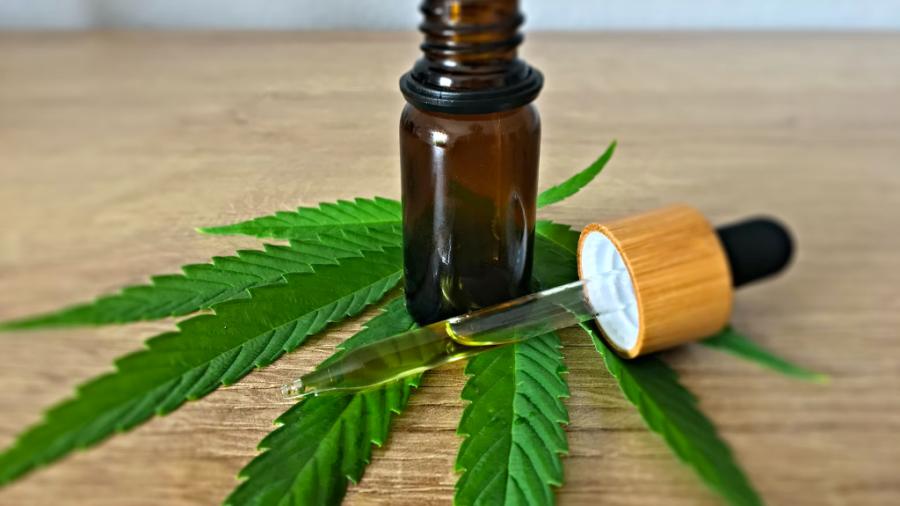Exploring the Therapeutic Potential of CBD Oil

Cannabidiol (CBD) oil is gaining popularity as a natural treatment for various health issues. CBD is a non-psychoactive compound extracted from cannabis plants. Unlike the better-known THC, CBD does not cause a "high." Research indicates CBD may help with pain, anxiety, sleep, and more. But what does the science say so far about CBD's effects?
What Exactly is CBD Oil?
CBD oil is concentrated CBD extracted from cannabis plants and diluted with a carrier oil like hemp seed or coconut oil. CBD can be sourced from both marijuana and hemp plants. However, CBD oil is typically derived from hemp, as it contains higher CBD and negligible THC compared to marijuana. There are various ways to extract and isolate CBD to different purities for use in oils, edibles, topicals and other products.
CBD Oil for Anxiety Relief
Several studies indicate CBD may reduce anxiety levels. In a 2019 clinical trial, CBD oil significantly reduced anxiety symptoms in 57 men with social anxiety disorder. MRI scans revealed changes in blood flow to regions of the brain linked to anxiety after CBD intake. CBD also appears to influence serotonin signaling in the brain, which regulates mood. More human trials are still needed, but CBD oil shows promise for anxiety relief.
Alleviating Pain and Inflammation
Chronic pain affects millions of adults in the US. Prescription and over-the-counter painkillers often come with adverse side effects. Some research suggests CBD may offer a safer alternative for pain relief. One 2020 review looked at 32 studies examining CBD use for chronic non-cancer pain. Nearly all of them found CBD significantly reduced pain levels. CBD may ease pain by reducing inflammation, regulating neurotransmitter activity, and other mechanisms. Topical CBD products may also relieve localized pain when applied directly to the skin.
CBD Oil for Treating Epilepsy
In 2018, the FDA approved Epidiolex, a purified CBD oil, for treating seizures associated with Lennox-Gastaut syndrome and other rare epilepsy forms in children 2 years and older. This historic approval was based on clinical trials demonstrating Epidiolex reduced seizure frequency by 30-40%. Exactly how CBD suppresses seizures is still under investigation. But it appears to stabilize irregular electrical brain activity and neurotransmitter imbalances implicated in seizures. More research is underway investigating CBD's efficacy for other types of epilepsy.
The Effects of CBD Oil on Sleep
Insomnia and other sleep disorders affect millions of Americans. Pharmaceutical sleep aids can cause dependence and impair cognition and coordination the following day. Some studies indicate CBD may offer a non-habit forming sleep aid. CBD's anxiety-reducing properties may facilitate sleep by calming hyperarousal. A 2017 trial gave CBD to insomnia patients who reported longer sleep duration and improved insomnia severity. However, optimal CBD dosages for sleep enhancement remain to be determined.
Is CBD Oil Safe?
Currently available evidence indicates CBD is likely safe for most people when used as directed. Reported side effects include changes in appetite, diarrhea, drowsiness and fatigue. However, high doses of CBD may cause liver injury in some patients. CBD can also interact with certain medications like blood thinners. As with any supplement, discuss CBD use with your healthcare provider first. More long-term studies are warranted to fully understand CBD's effects, especially with chronic use.
While research is still ongoing, CBD oil appears to hold therapeutic promise for anxiety, pain, epilepsy and sleep disturbances. However, consumers should be cautious of inflated or unsubstantiated health claims regarding CBD products. CBD should never be used as a replacement for proven medical treatments except under a doctor's supervision. In summary, CBD oil may soon become a valuable addition to our modern pharmacopeia. But more rigorous clinical trials in humans are needed to confirm its purported benefits and safety profile.
Previous Posts:
Next Posts: